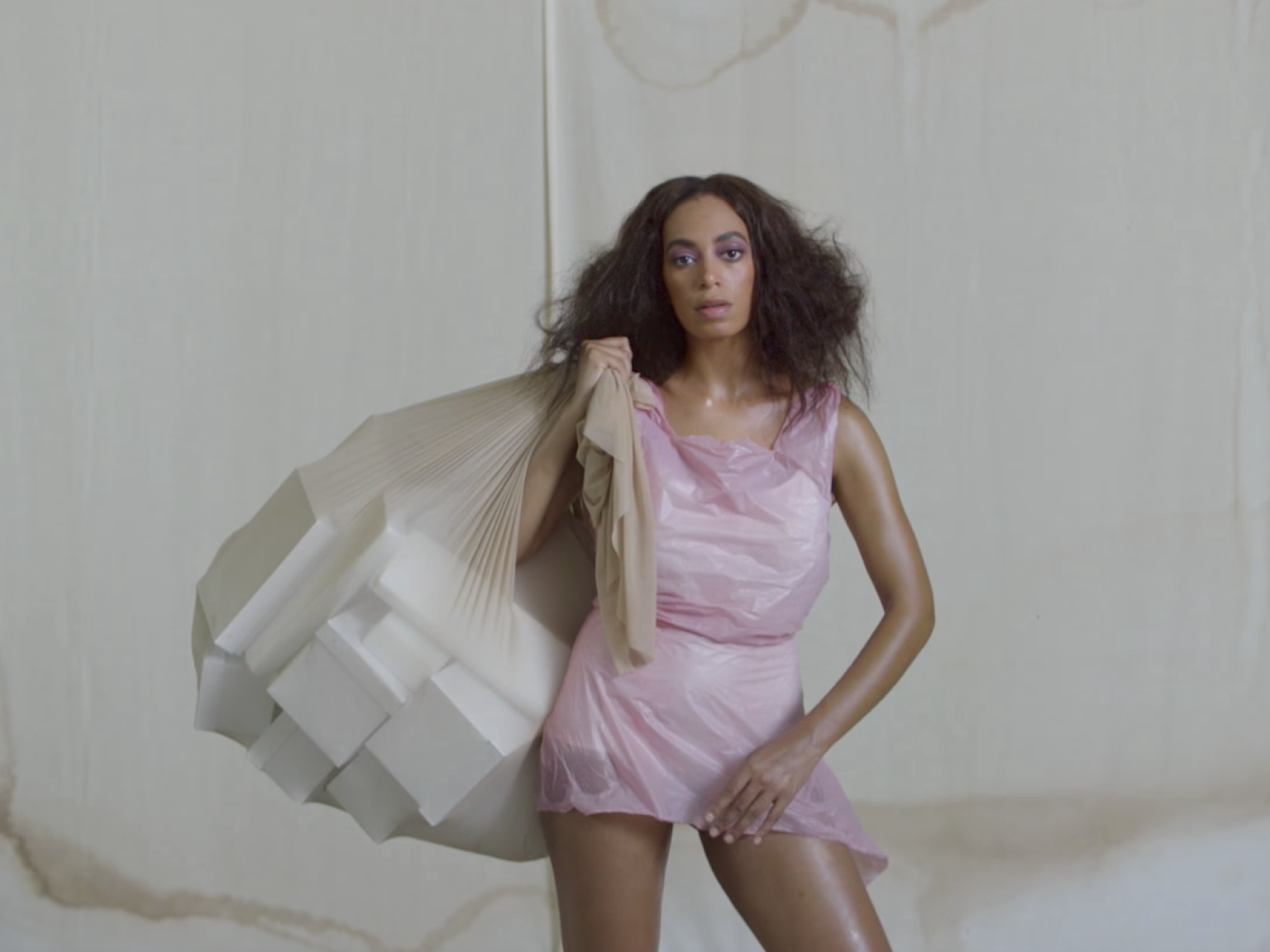Looking at the black experience through Solange’s raw lyricism
“Blackness will never go away. It’s who I am. It’s what I know. I’ll always be a black woman, and I’ll always create work from this black woman’s body. I’ll always be from third ward.” – Solange
It’s no secret that Solange’s music is synonymous with healing. With each melody and utterance, she debunks the false notion that black people are unworthy. From A Seat at the Table to When I Get Home, her music encapsulates all that we have ever known, and all that we have yet to become. Yes, at times, the artist might seem otherworldly to her assembly of doting fans, but in reality, Solange is every black woman. She speaks for us, whilst standing by us.
At the heart of her artistry lies raw and honest lyricism. Many of her records address the injustices faced by black men and women, whilst doing so much more than that. From calling out daily microaggressions to asserting the intricacies surrounding hair politics, Solange’s discography functions as resistance against white supremacy. Boundaries have been set, loud and clear. Her music also functions as celebration, unabashed self-love and beautiful portraits of black life and consciousness. Let’s deep dive into a complex black world, narrated by Solange and accompanied by her spellbound frequencies.
‘Mad’ ft Lil Wayne, A Seat at the Table
“You got the right to be mad / But when you carry it alone you find it only getting in the way / They say you gotta let it go / Now tell 'em why you mad son /Cause doing it all ain't enough (got a lot to be mad about)/ But I'm not really allowed to be mad.”
Undoubtedly, this album defined a generation. In collaboration with New Orleans native, Lil Wayne, Solange set out to comment on the history of black anger, where it’s rooted and how it continues to manifest today. Reflecting on the trope of the angry black woman, Solange asserts that such anger isn’t futile, it’s a tool we often use to survive. She repeats “you got the right to be mad” and juxtaposes it with “but I'm not really allowed to be mad”, highlighting the sad truth that white supremacy continuously ignores and refuses to acknowledge black anger and the reasons why it exists. In this song, it feels like Solange is struggling to come to terms with the reality of America and its deep racial inequality. Simultaneously, this song posits that black anger is a vehicle for change and we’re very much through with it being perceived as unjustified aggression. It is simply black vulnerability that deserves to be recognised as such.
‘Don’t Touch My Hair’ ft Sampha, A Seat at the Table
“They don’t understand / What it means to me / Where we chose to go / Where we’ve been to know/ Don't touch my crown.”
This track stayed with me long after its release. Functioning as both a movement and an anthem, DTMH is a declaration against trespassing. As women of colour, we’re aware that others may find our hair ‘fascinating’ or ‘cool’, but touching our hair unsolicited is something we find incredibly uncomfortable, needless to say. We could do without the whole interaction if truth be told. This track is commenting on the constant policing and intrusion of black women’s bodies. In Solange’s words, our hair is “incredibly spiritual, and energetically, it really encompasses and expresses who we are.” It’s important that we preserve what is ours, and what Solange is saying is: You wouldn’t approach a Queen and take her crown, would you?
‘F.U.B.U’, A Seat at the Table
“When you feeling all alone / And you can't even be you up in your home / When you even feeling it from your own / When you got it figured out / When a nigga tryna board the plane / And they ask you, "What's your name again?" / Cause they thinking, "Yeah, you're all the same" / Oh, it's for us.”
Solange has been open about the difficulties she faced when bringing this song to life. In an interview by NPR, she implores: “I kept trying, and kept trying, and it hurt so much and it was so painful for me and it was so sad.” During the writing process, Solange felt a wave of panic as she felt the weight of responsibility on her shoulders – something many black creatives feel when making work that encapsulates a collective experience. This can be heard at the beginning of the song when she echoes: “For us, this shit is for us.” She successfully addresses the harmful stereotypes inflicted on the community, particularly black men (“I hope my son will bang this song so loud/ that he almost makes his walls fall down/ cause his momma wants to make him proud, oh to be us.”). The song is a form of activism, and it’s truly for us, by us. This particular track made me think of a scandal involving Stormzy when he was abruptly woken up by the sound of policemen breaking down his door – as they believed him to be a burglar in his own home. It’s important to note that his home was in west London and that level of racism and discrimination reiterates the uncomfortable truth that “you can’t even be you up in your home.”
‘Almeda’, When I Get Home
“Brown leather, brown sugar / Brown leaves, brown keys / Brown zippers, brown face / Black skin, black braids / Black waves, black days / Black baes, black days / These are black-owned things.”
In 2016, Solange became an advocate for the #BlackBank movement, which sought to encourage African Americans to move their money to black-owned banks. In this song, she’s claiming back black assets such as “Black skin, black braids, Black waves.” She’s also blowing a gentle kiss to a community of cultural appropriators. In essence, this song is about acknowledgment and awakening a universal consciousness. It also heavily explores ideas of ownership and power, particularly regaining them as a black person. Owning something, whether it be your hair, business or home – Solange is expressing how critical it is to wear it proudly and support one another.
‘Weary’, A Seat at the Table
“I'm weary of the ways of the world / Be weary of the ways of the world / I'm weary of the ways of the world / I'm going to look for my body yeah / I'll be back real soon / Be leery bout your place in the world / You're feeling like you're chasing the world / You're leaving not a trace in the world / But you're facing the world.”
Finally, Solange gives us permission to rest our weary heads. She sings, after centuries of pain and injustice, please for a moment, allow yourself to pause. This track is about grief, and outrage, but it’s also about the black body’s sheer ability to keep going. As a vehicle for survival, the engines have turned off and we lay back into the smooth melody – the gentle bass takes us to a place of refuge and acceptance. Ultimately, our bodies exist, going about their daily lives trying to make something of themselves, but struggling to see the footprints they’re leaving behind. The lyrics of this song strongly comment on the struggles of existing as part of someone else’s tenet. By touching on the African diaspora, black feminism and the black body, this track has a worthy seat at the table in its promotion of healing. We’re released for three minutes and fourteen seconds – so I let myself drift and breathe.




